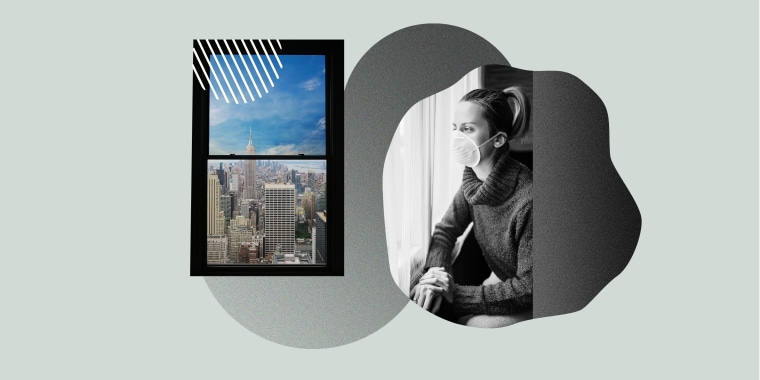When much of the world was stuck inside and barred from almost every social activity, we all constantly asked ourselves, "When can we get back to normal?" But even as returning to normal feels closer than it's been since March, many people are continuing to stay home.
While concerns about catching and spreading the coronavirus are still very legitimate, many public health experts now say it's safe to get out and see friends and family again, provided you take certain precautions. So what's keeping all these people indoors and isolated?
The answer may be similar to a phenomenon you've likely heard before: FOMO, which stands for "fear of missing out." Now, many people are experiencing FOGO, or "fear of going out."
What is FOMO, and what is FOGO?
FOMO may feel like it's been around for years at this point — and it has. Author and podcast host Patrick McGinnis, who recently wrote a book on the topic, told TODAY that he coined the term back in 2004 when he saw people's behavior change in the wake of 9/11.
"We felt that life would never go back to normal, and we'd live in a permanent state of fear," McGinnis recalled. "When life did come back to normal ... we wanted to do everything all the time."
"FOMO is a perception that there's something better out there available to you," he continued. "FOGO is a perception that something scary is out there ... We don't understand coronavirus fully so we see risk everywhere."
According to Jill Stoddard, who has a doctorate in clinical psychology and is the author of "Be Mighty," FOMO is a fundamental drive that dates back to early homo sapiens, when humans needed acceptance from their tribe to survive. What's different now, however, is that social media makes it too easy to see exactly what we're missing out on.
"The thing I've seen increase the most in my time as a psychologist is social comparison," she said. "People really struggle with feeling bad about themselves when comparing themselves to others."
Both FOGO and FOMO are types of anxiety, Stoddard explained. They're especially common right now, as people struggle with "ambiguity" around how they should behave and a "perceived lack of control" over the future, she said.
McGinnis added that one reason FOGO seems so prominent is that we're living in a "two-speed society" after lockdown. "A large percentage of people are still cautious and observant, and (others) are living as if this never happened," he said. This makes the difference between the two groups especially stark.
Will FOGO continue after the coronavirus?
Both Stoddard and McGinnis agree that some aspects of the quarantine mindset will stick with us in the years and months to come. McGinnis pointed to a fresh perspective on the relationships and hobbies that kept us sane.
Stoddard, on the other hand, has observed that many of her clients who experienced anxiety before quarantine feel relief now that other people understand what they're going through.
"For those who are introverted, they feel like they have permission to be themselves," she said. "The world isn't going to go back to the way it was."
McGinnis also predicted that "we'll have an epic bout of FOMO" once people feel completely safe leaving their homes.
"I think it will destroy the FOGO, and everybody will be running around living their best lives because we now appreciate things in a way we didn't three months ago," he said.
How can you cope with FOMO?
So, if we can all expect to experience overwhelming FOMO once we're actually back to normal, how can we learn to manage it and prioritize what really matters?
"When we feel FOMO, we need to ask ourselves, is it as good as it looks?" McGinnis said. "Perception can be deception. Ask yourself, can you actually do this thing? Is it even available to you?"
"You've also got to think deeply about your motivations," he continued. "Am I doing this because I want to please somebody or because I'm feeling insecure? ... Have agency in your own decisions."
Another crucial tip, per McGinnis and Stoddard, is limiting your time online and the amount of information you consume.
"When you have FOMO, you're living in a speculative world," McGinnis said. "You need time away from your screens in order to connect back into the real world."
